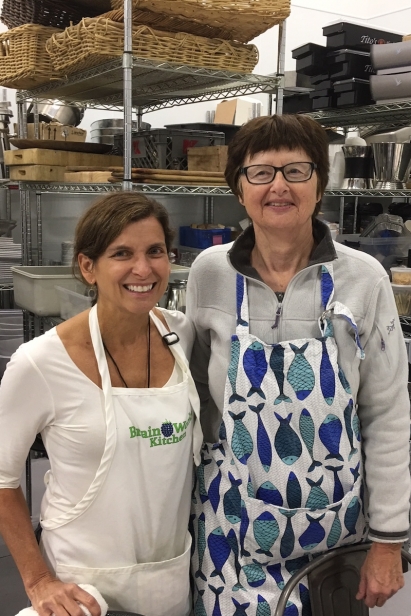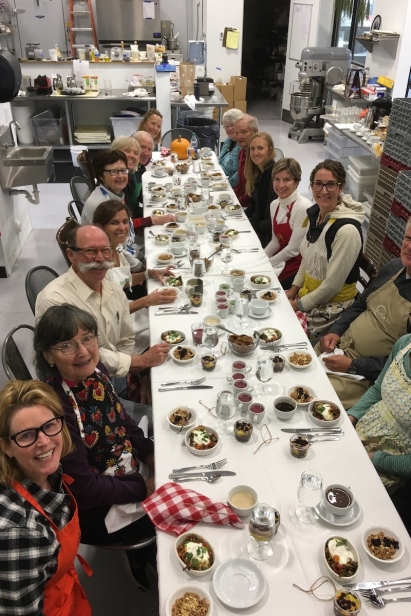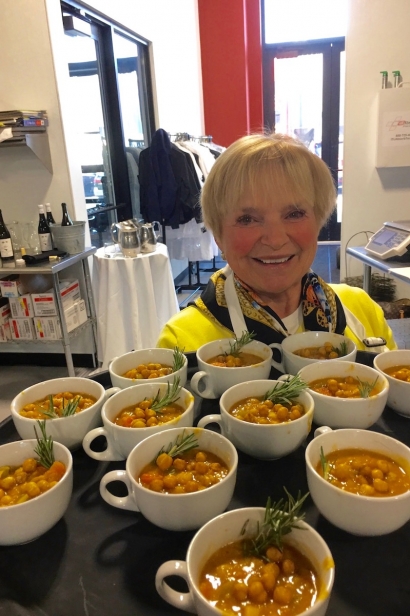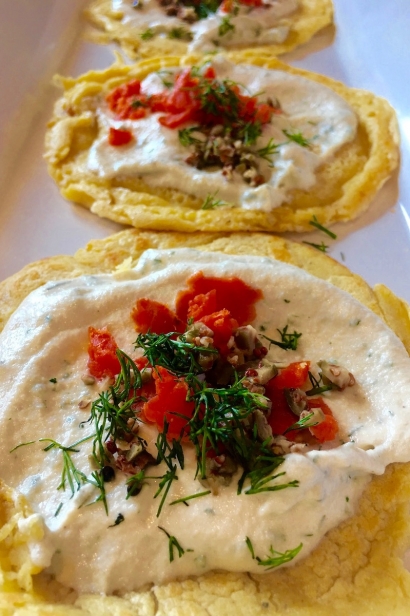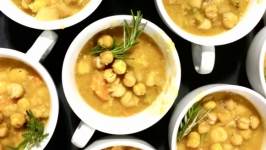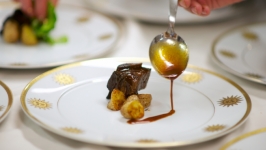Fending off Alzheimer's with Food: Women who Drive the Movement to Cook for Brain Health
Alzheimer’s disease, the most common type of dementia, has long been considered a consequence of aging, bad genes and bad luck. But an increasing number of studies now suggest that what we do beginning in midlife—what we eat and our daily habits—can protect many of us from getting Alzheimer’s later.
According to research from the Alzheimer’s Association, certain foods can help fend off the disease and cognitive decline. That’s good news for baby boomers moving into older age groups because Alzheimer’s experts predict a near tripling in the coming years for disease sufferers—from 5.7 million in the United states now to nearly 14 million by 2050.
In Idaho, there are an estimated 25,000 people 65 years or older who have the disease today. It’s predicted that number will rise to 33,000 by 2025.
It may be surprising to some that women make up two-thirds of all Alzheimer’s victims. More research is needed to find out exactly why. At the age of 65, for instance, a woman is more likely to be diagnosed with Alzheimer’s than breast cancer.
As devastating as Alzheimer’s is, researchers have yet to find a cure, reliable drug treatments or the exact cause. But the latest science tells us that people don’t come down with Alzheimer’s suddenly. The accumulation of amyloid and tau proteins in the brain, key pathological markers of the disease, starts 20 to 30 years before symptoms are apparent. Researchers suspect that many years of chronic inflammation chips away at the brain’s defenses. Alzheimer’s disease first attacks the hippocampus, the memory and emotional center of the brain. With time, victims lose their ability to remember, think and imagine.
Why are women at higher risk for Alzheimer’s? No one knows the answer just yet. One theory points to the lack of high-quality sleep women experience during certain life stages, such as during menopause. Sleep is crucial for clearing toxins from the brain, including amyloid protein. Or is it the decline of estrogen that happens after menopause? Just recently, brain scan research showed how estrogen deficiency makes a woman’s brain vulnerable to the onset of Alzheimer’s. Others believe women are less able to fight off inflammation, thought to be a key factor in developing Alzheimer’s.
Women are not only at the epicenter of the Alzheimer’s crisis, they are leading the movement to figure out how best to protect people from its onset. Dr. Martha Claire Morris, a nutritional epidemiologist at Chicago’s Rush University, has been studying nutrition and brain health for over 20 years. As lead researcher of the MIND diet study, published in the journal Alzheimer’s and Dementia in 2015, she showed a 53% reduction in Alzheimer’s risk in those who ate more brain-healthy foods. (See sidebar for a list of the 10 brain-healthy food groups, and five food groups to limit.)
MIND, which means Mediterranean-DASH Intervention for Neurodegenerative Delay, is a hybrid of the Mediterranean and the DASH (Dietary Approaches to Stop Hypertension) diets. Researchers tallied up the foods eaten by a large population of healthy elders and followed them for four and a half years. Those who ate more from the “brain-healthy” list, and less from the “brain-unhealthy” one, had significantly less dementia. even eating from the MIND diet half the time yielded a risk reduction of 37%.
The mediterranean way of eating includes an abundance of colorful vegetables, nuts, beans, fruit, whole grains, seafood and fish, liberally doused with olive oil and washed down with a moderate amount of red wine. mediterraneans don’t shy away from healthy fats—the polyunsaturated and monounsaturated fats found in nuts, olives, olive oil and avocados. olive oil is even thought to be the perfect conduit for absorbing the phytonutrients and vitamins found in mediterranean foods.
We also know that a diet high in saturated fat, found in many meat and dairy products, is inflammatory to the brain and may hasten cognitive decline. Those who eat an abundance of fast foods, processed meats, dairy and refined sugars have more brain shrinkage, an indicator of neuron cell death and accelerated aging, according to research conducted by Dr. Lisa Mosconi, Associate Director of the Alzheimer’s Prevention Clinic at Weill Cornell Medical Center/New York-Presbyterian.
Just across the border of east Idaho, Dr. Martha Stearn, a cognitive health specialist in Jackson, Wyoming, believes in the power of diet and lifestyle to fend off cognitive decline. That’s why she created Brain Works, a seven-day “boot camp” to teach evidence-based ways to prevent Alzheimer’s and other dementias. The Brain Works Boot Camp, now in its third year, incorporates computerized brain training to build neuroplasticity, physical exercise geared towards mind/body fitness, yoga and breathing techniques to combat stress, and cooking classes based on the MIND and Mediterranean diets. (Full disclosure: I collaborate with Dr. Stearn to provide the culinary curriculum for Brain Works.)
And, two registered dieticians from Boise published one of the best books, in my opinion, on the subject of food and Alzheimer’s. The Alzheimer’s Prevention Food Guide by SeAnne Safaii-Waite and Sue Stillman Linja guides readers to cook from 105 brain-healthy ingredients, such as turmeric, walnuts, legumes, pumpkin seeds, avocados and whole grains. For Safaii-Waite and Linja, the quest to educate about brain health is personal: each watched her mother suffer from Alzheimer’s.
While our knowledge of what to do to avoid getting Alzheimer’s is still evolving, we can be certain that good lifestyle habits will help. Cooking with brain-healthy food is a good place to start. And if you enjoy a glass of wine with your meal, please do. Red wine (five ounces each day) is one of the MIND diet study’s brain-healthy food groups.
Best Foods for Your Brain (defined by the MIND diet study)
Berries—at least two half-cup servings each week
Vegetables—choose colorful, cruciferous veggies every day
Leafy greens—one generous serving every day
Beans—four or more servings each week
Nuts—one half-cup at least five times each week
Fish and seafood—one or more servings each week, not fried
Chicken and poultry—two or more servings each week, not fried
Whole grains—three half-cup servings each day
Olive oil—use as your primary cooking oil
Red wine—one (five-ounce) glass per day
Five Food Groups to Limit
Fast and fried foods—one or less servings each week
Red meat—up to four (three-ounce) servings each week
Cheese—less than one ounce each week
Butter—up to 1 tablespoon each day
Pastries and sweets—up to five servings each week



